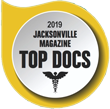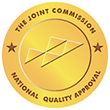Under the expert guidance of Dr. Jeremy Mirabile, our Medical Director and board-certified addiction medicine physician, we help clients break free from the destructive thought patterns that fuel substance abuse.
What is Cognitive Behavioral Therapy (CBT)?
CBT is an evidence-based therapy that explores how our thoughts influence our emotions and actions. It focuses on identifying negative thought patterns that contribute to harmful behaviors and replacing them with healthier, more constructive beliefs. Rather than dwelling on the past, CBT gives individuals tools to work through challenges in the present and develop new ways of responding to stress, cravings, and emotional pain.
For individuals struggling with drug and alcohol addiction, CBT provides practical tools to:
- Identify triggers that lead to substance use
- Challenge negative thought patterns
- Develop healthy coping strategies
- Build lasting recovery skills
Unlike traditional talk therapy, CBT focuses on actionable techniques you can use immediately when facing cravings or stress.

How CBT Supports Drug
and Alcohol Recovery
Breaking the Addiction Cycle
Substance use often begins as a way to cope with emotional pain, trauma, or overwhelming stress. Over time, these coping mechanisms become harmful habits. CBT helps break this cycle by teaching you to:
Recognize Destructive Thoughts:
- “I can’t handle this stress without drinking”
- “I’ve already relapsed, so why try?”
- “I’m too damaged to get better”
Replace with Healthy Alternatives:
- “I can use my coping skills to manage this stress”
- “A setback doesn’t erase my progress”
- “I have the strength to recover and heal”
- Building skills for emotional regulation and problem-solving
CBT isn’t just a tool for staying sober; it’s a pathway to showing up more fully in your own life. It can help you handle stress at work without unraveling, reconnect with people you care about, or move through grief without shutting down.
These are the everyday moments where growth takes root. CBT gives you practical ways to respond differently, think more clearly, and rebuild trust in yourself, one small step at a time.
Treatment at Recovery Keys in Ponte Vedra Beach, Florida
Individual CBT Sessions:
Work one-on-one with one of our experienced therapists who specializes in substance abuse recovery.
What to Expect:
- Personalized assessment of thought patterns and triggers
- Weekly 50-minute sessions focused on practical skill-building
- Homework assignments to practice new coping strategies
- Regular progress monitoring and plan adjustments
Group CBT Therapy
Connect with others facing similar challenges in drug and alcohol recovery. Group sessions provide:
- Shared experiences and mutual support
- Different perspectives on common recovery challenges
- Accountability and encouragement from peers
Integration with Comprehensive Care
CBT at Recovery Keys doesn’t exist in isolation. We integrate these techniques throughout your entire treatment experience, including:
- Medical detox support
- Individual and family counseling
- Medication-assisted treatment when appropriate
- Aftercare planning and ongoing support

Benefits of CBT for Substance Abuse Recovery
Immediate Benefits
- Reduced cravings and urges to use
- Better stress management skills
- Improved emotional regulation
- Enhanced problem-solving abilities
Long-Term Recovery Outcomes
- Lower risk of relapse
- Improved relationships with family and friends
- Better job performance and stability
- Increased self-confidence and self-worth
- Greater life satisfaction and purpose
Research-Backed Results
- Studies consistently show that CBT is one of the most effective treatments for drug and alcohol addiction, with success rates significantly higher than willpower alone.
Why Choose Recovery Keys for CBT Treatment?
Expert Medical Leadership
Dr. Jeremy Mirabile brings extensive experience in addiction medicine and evidence-based treatment approaches to every aspect of your care.
Personalized Treatment Plans
No two people experience addiction the same way. Our CBT recovery programs are designed to meet your specific needs, challenges, and recovery goals.
Beautiful Ponte Vedra Beach, Florida Location
Heal in a peaceful, supportive environment that promotes reflection and growth throughout your recovery journey.
Comprehensive Support Services
CBT is just one component of our holistic approach to drug and alcohol recovery, ensuring you receive well-rounded care.

Getting Started with CBT at Recovery Keys
Step 1: Your First Conversation
We’ll listen to your story and help you understand how our CBT programs can support your drug and alcohol recovery goals.
Step 2: Getting to Know You
Meet with one of our treatment experts for a thorough evaluation of your unique needs and challenges.
Step 3: Your Personal Roadmap
Receive a treatment plan designed specifically for you, incorporating CBT along with other therapies that match your recovery goals.
Step 4: Begin Healing
Start your individual and group CBT sessions with compassionate professionals who believe in your ability to recover.
Take the First Step Toward Recovery Today
Don’t let drug and alcohol addiction control your life any longer. CBT at Recovery Keys in Ponte Vedra Beach, Florida, can help you develop the skills and confidence needed for lasting recovery. Unlock the keys to your recovery now call (904) 551-1394.
Our admissions specialists are available to answer your questions about CBT treatment, insurance coverage, and how to begin your recovery journey.
Frequently Asked Questions About CBT
-
How long does CBT treatment typically last?
+Most clients benefit from 12-20 CBT sessions, though duration varies based on individual needs and recovery goals.
-
Does insurance cover CBT for addiction treatment?
+Many insurance plans cover CBT as part of substance abuse treatment. Our treatment experts can help verify your benefits.
-
Can CBT be combined with other addiction treatments?
+Yes, CBT works well alongside medication-assisted treatment, counseling, and other evidence-based therapies.
-
What makes CBT different from other therapies?
+CBT focuses on practical, actionable techniques you can use immediately, rather than just talking about problems.




















